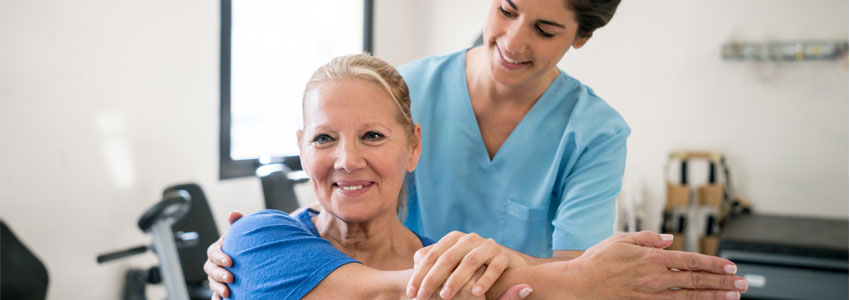

STROKE REHABILITATION
After hospitalization for stroke, many patients still face challenges with physical, speech and mental functions. Rehabilitation for these problems can be provided in a variety of settings. Rehabilitation programs are critical in helping patients regain lost skills, relearn tasks and work to be independent again. In many cases, there is great potential for the brain to recover. With diligent rehabilitation, these prospects can get even better. Even if major neurological deficits do not improve, the patients’ functioning can improve as they learn ways to compensate for their problems. Some factors that play a role in success of stroke rehabilitation are:
- The extent of the brain injury – the less severe the injury, the better the chances for recovery.
- The stroke survivor’s attitude – a survivor’s positive attitude can help him or her cope with difficult times and focus on getting better.
- Family support – a stroke survivor’s family can be the most important form of support during rehabilitation. Family members can reassure stroke survivors that they are wanted, needed and still important to the family.
- Immediate rehabilitation – rehabilitation must begin as soon after the stroke as possible. Even simple tasks such as exercising paralyzed muscles and turning the person in bed should begin very soon after the stroke.
- Stroke rehabilitation is most successful when it is a team effort. The stroke survivor and his or her family must work together with the doctor, nurse and other rehabilitation specialists.
Learn more about our rehabilitation services.